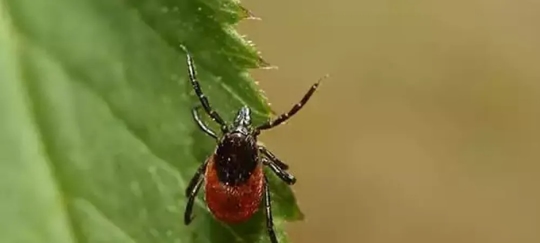No one likes to share bad news, but we have some for you today. We asked when tick season starts in Florida, but that’s a bit of a trick question. The truth is, ticks can stay active year-round here, which means there isn’t one true tick season and there isn’t an offseason when we can let our guard down against them.
Tick Activity Through the Seasons
Although ticks might slow down in colder weather, they can stay active in temperatures as low as 45 degrees. Sometimes lower temperatures can be worse for tick activity because they will more actively look for a warm-blooded host to latch onto in order to survive the cold.
Ticks are less likely to reproduce in the winter months, which makes spring and summer the seasons when tick populations will peak. Female ticks can lay thousands of eggs at a time and, under the right conditions, these eggs will hatch within two weeks' time.
Tick Activity on Your Property
While you have the risk of picking up ticks any time you go outdoors, it makes sense to want to keep your own lawn, where you probably spend the majority of your outdoor time, tick-free. Certain factors make your lawn more susceptible to having ticks on it.
Ticks typically end up on your lawn because they ride in on a wildlife host, and then drop off that host while it’s on your property. This means that the most effective way you can keep ticks off your lawn is to keep wildlife off your lawn. How do you do that?
Small wildlife and rodents are less likely to approach your home if they are exposed while doing so, so keep hiding spots to a minimum. Remove lawn debris, keep the grass trimmed short, consider removing rock walls or other landscaping elements that allow animals to hide within them, and keep bushes and shrubbery well-groomed.
Wildlife will often approach homes looking for food. Limit outdoor food sources to make your yard less appealing to these animals. Don’t leave pet food outside, remove bird feeders, keep garbage bins tightly covered, and limit the number of fruit trees you have on your property.
Wildlife also looks for water sources when approaching your home. Remove pet water dishes and birdbaths, keep your gutters clean, and fill low spots in your lawn and driveway that collect water.
How to Take Care of Ticks
Of course, even by doing your best to keep wildlife off your lawn, ticks can still end up on your property. They often stay along the tree line and can be picked up by your pets or children as they play.
If you’d like to take a more proactive approach to tick control, call Keller’s Pest Control. We offer tick control options that will treat the areas where ticks are most likely to be. We also offer more extensive pest control options that will protect your property and home from both ticks and the animals that bring them onto your property in the first place. Call Keller’s to learn more about our services.

